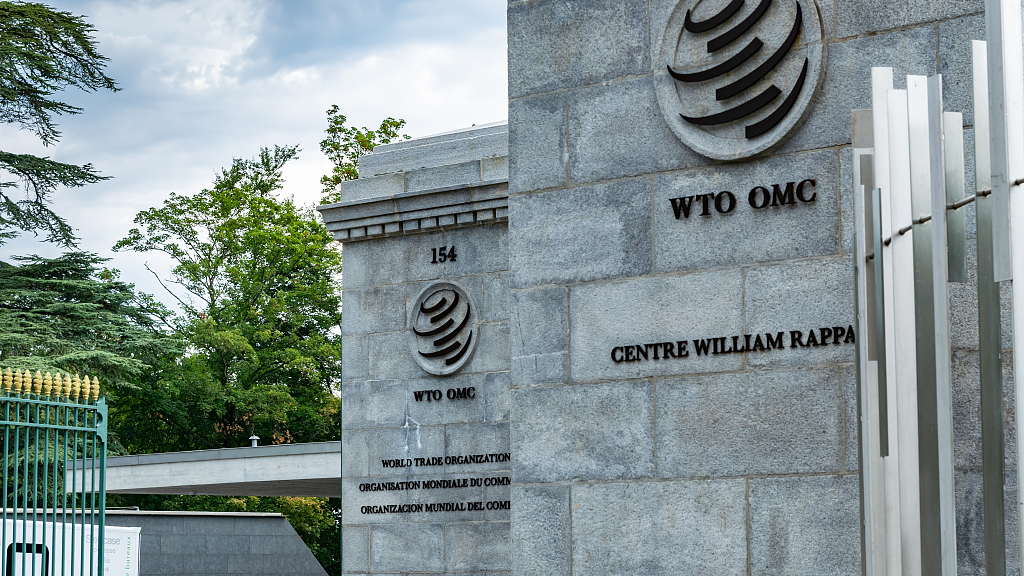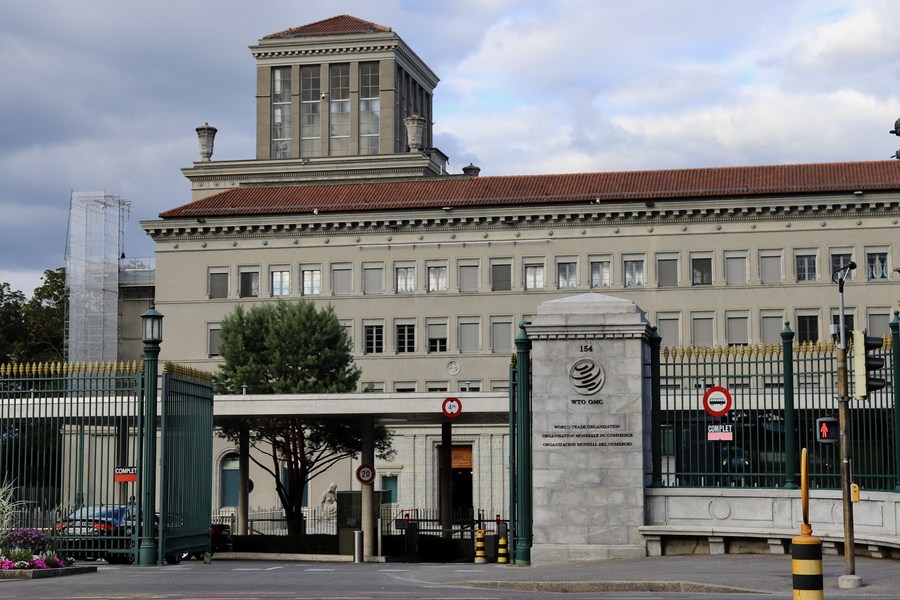
Editor's note: Alexandr Svetlicinii is Associate Professor of Law at the University of Macau, where he also serves as program coordinator for the Master of Law in International Business Law. The article reflects the author's opinions and not necessarily the views of CGTN.
China has recently initiated a dispute in the World Trade Organization (WTO) challenging the legality of the U.S. export controls that require prior government approval for the exports of advanced computing semiconductor chips, supercomputer items, and related technologies. This case will present an important opportunity for the WTO to clarify the borderline between the international trade commitments and permissible security-related measures.
Traditionally, the export controls were agreed upon in the international treaties concerning non-proliferation of nuclear, biological, and chemical weapons. The nations have been building consensus on the export controls over conventional weapons and ammunition by adopting the detailed lists of specific dual use (for civil and military purposes) products.
Nonetheless, starting with the passage of the Export Control Reform Act in 2018 under the Donald Trump administration, the U.S. deviated from the aforementioned consensus - building efforts and introduced the possibility for adopting extensive export controls covering not only military but also commercial products and technologies under the umbrella of "economic security." Consequently, the current U.S. export control lists contain more than 2,800 items that are subjected to prior approvals.
Furthermore, the U.S. restrictions also apply extraterritorially and should be complied with by the foreign companies using U.S. technologies subjected to export controls. Thus, a European chipmaker that uses designated U.S. technologies in its manufacturing process and wishes to sell the resulting products to China would require permission from U.S. authorities.

An exterior view of the World Trade Organization (WTO) headquarters in Geneva, Switzerland. /Xinhua
An exterior view of the World Trade Organization (WTO) headquarters in Geneva, Switzerland. /Xinhua
In its request for consultations in the WTO, China argued that instead of using export controls to contribute to world peace and security, the U.S. is using export controls to protect "its leadership in science, technology, engineering and manufacturing sectors." China has been supportive of the WTO and its multilateral trade governance framework. The WTO rules allow its members to deviate from their international trade commitments using the "security exception" that justifies trade restrictions when they are related to the nation's "essential security interests." The WTO rules also require that the security-related restrictions should be only imposed at times of "war or other emergency in international relations."
In two recent disputes against the U.S. brought by China to the WTO, the U.S. has failed to prove that its additional tariffs on steel and aluminum products from China and special marking requirements for products originating from the Hong Kong Special Administrative Region were imposed during an emergency in international relations.
As a result, the WTO panels required the U.S. to remove these non-complying measures. Nevertheless, U.S. Trade Representative Spokesperson Adam Hodge labeled both panel reports as "flawed interpretation" and rejected the WTO competence to review the issues of national security in the WTO dispute settlement. Hodge said his government will not comply with the findings of the report and will not remove the non-complying trade restrictions.
Accordingly, the case brought by China in relation to the U.S. export controls will serve as an important opportunity for the WTO to clarify the scope of permissible restrictions that can be imposed on the exported goods and technologies on security grounds. The functioning of the WTO dispute settlement mechanism is paralyzed due to the U.S. boycotting the appointment of new members of its Appellate Body.
Unlike China, Australia, Brazil, Canada, the European Union, and other countries, the U.S. has not joined the multi-party interim appeal arbitration arrangement that allows participating WTO members to finalize the settlement of their trade disputes. Even though the U.S. may follow its tactics of not complying with the WTO panel reports, the case brought by China will be a critical precedent supporting the predictability of the multilateral trade governance under the WTO.
(If you want to contribute and have specific expertise, please contact us at opinions@cgtn.com. Follow @thouse_opinions on Twitter to discover the latest commentaries in the CGTN Opinion Section.)